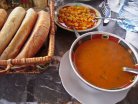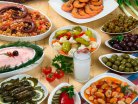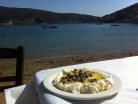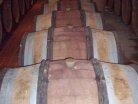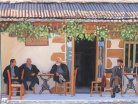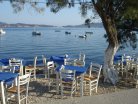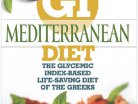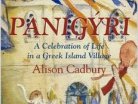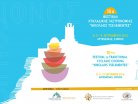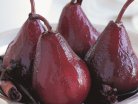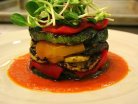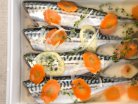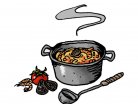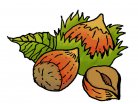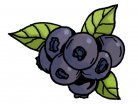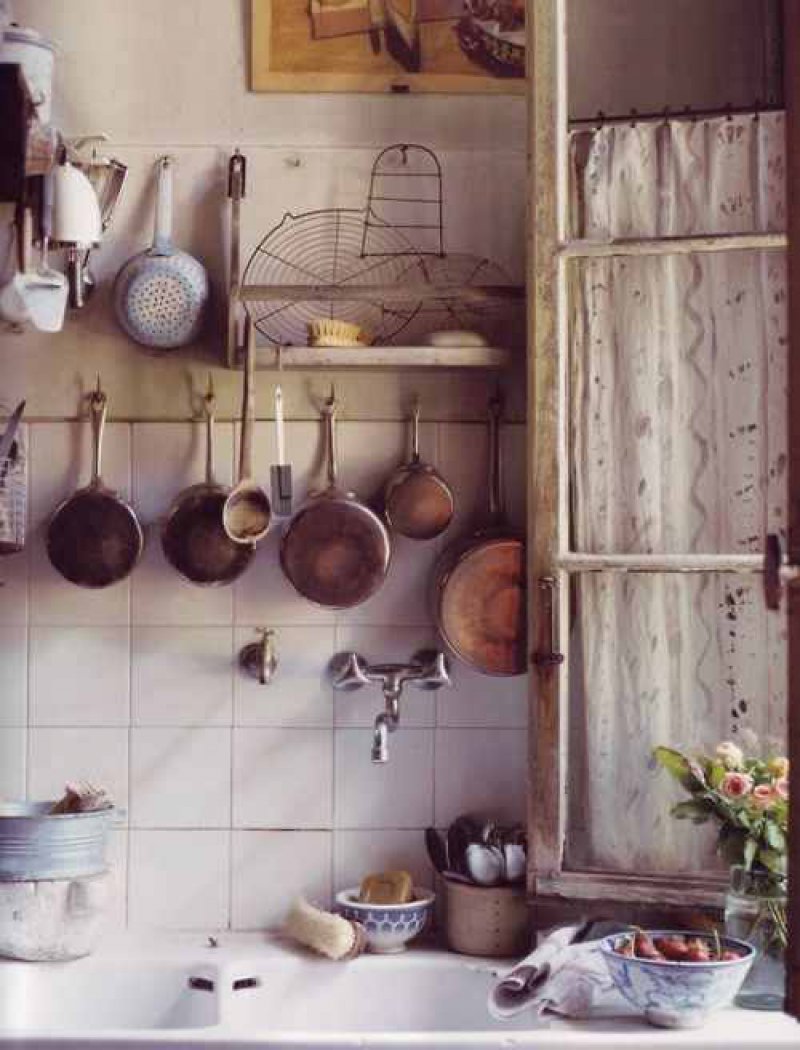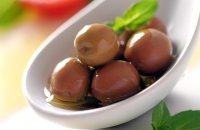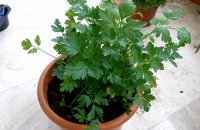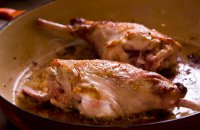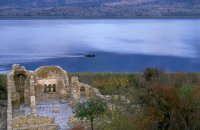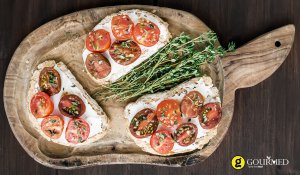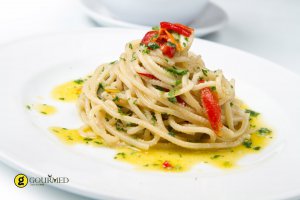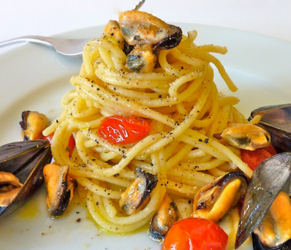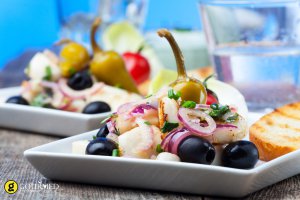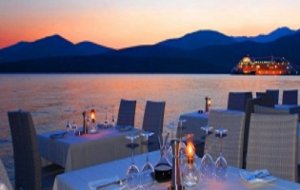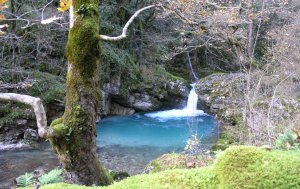People were able to make nourishing meals and ingest more proteins. According to Eco, the starving Europeans became fit and strong, their life expectancy increased, and they began to bare more children, thus filling our continent with healthy and creative men and women.
Besides offering sustenance, legumes provide organic fertilization for poor soils, restoring the nitrogen absorbed by cereal grains and garden vegetables. For this reason, in traditional, organic agriculture, they are often planted every second year, alternating with wheat, barley and other cereals or vegetables.
On Saturday evenings, women on Sifnos and other Cycladic islands come to the communal bakery, bringing their specially marked clay casseroles filled with soaked chickpeas that have been doused in fruity olive oil and seasoned with bay leaves and oregano. Covered and sealed with a piece of dough, the casseroles are set in the wood-burning oven, where they cook slowly all night. On Sunday morning, as the women return to their homes from church, they collect their pots of tender, fragrant chickpeas and serve them for lunch, accompanied by olives and crusty bread that soak up the delicious juices. Favas, beans, and the other legumes grow well, even in the dry islands. Cooked by themselves, or ingeniously combined with garden vegetables, grains or greens, and sometimes with small amounts of meat, they nourished the Greeks through long periods of hardship and need. Lentils are thought of as the most nutritious and digestible of all legumes, fed to children from an early age.
Bean soup, with or without tomato, was considered the typical Greek dish of the poor, and many jokes were made about it. Ironically, now that every civilised country considers our humble fasolada (bean soup) an ideal healthy dish, we have almost forgotten it. It is getting more and more difficult to find the wonderful Macedonian large beans (gigantes) in the supermarkets. Cheap imported legumes from all over the world have pushed aside the local production. Fortunately, organic farmers have once again started to produce the old Greek varieties of white medium and large beans, along with other traditional legumes, such as the famous yellow split peas of Santorini. But these foods are no longer destined for the tables of the poor; they have become expensive delicacies exported to northern Europe and the United States, and sold in specialty gourmet shops.
Recipes for enjoying beans at home:
Lentil Soup with Pasta and Mint (Fakes me Pastoula ke Diosmo)
White Bean Soup with Wild Celery (Fassolada me Selino)
Cranberry bean stew with potatoes and bell peppers (Fasolia Handres me Patates, Piperies ke Loukaniko)
Slow-cooked Chickpeas with Orange, Lemon and Celery (Revithia sto Fourno me Portokali, Selino ke Lemoni)


